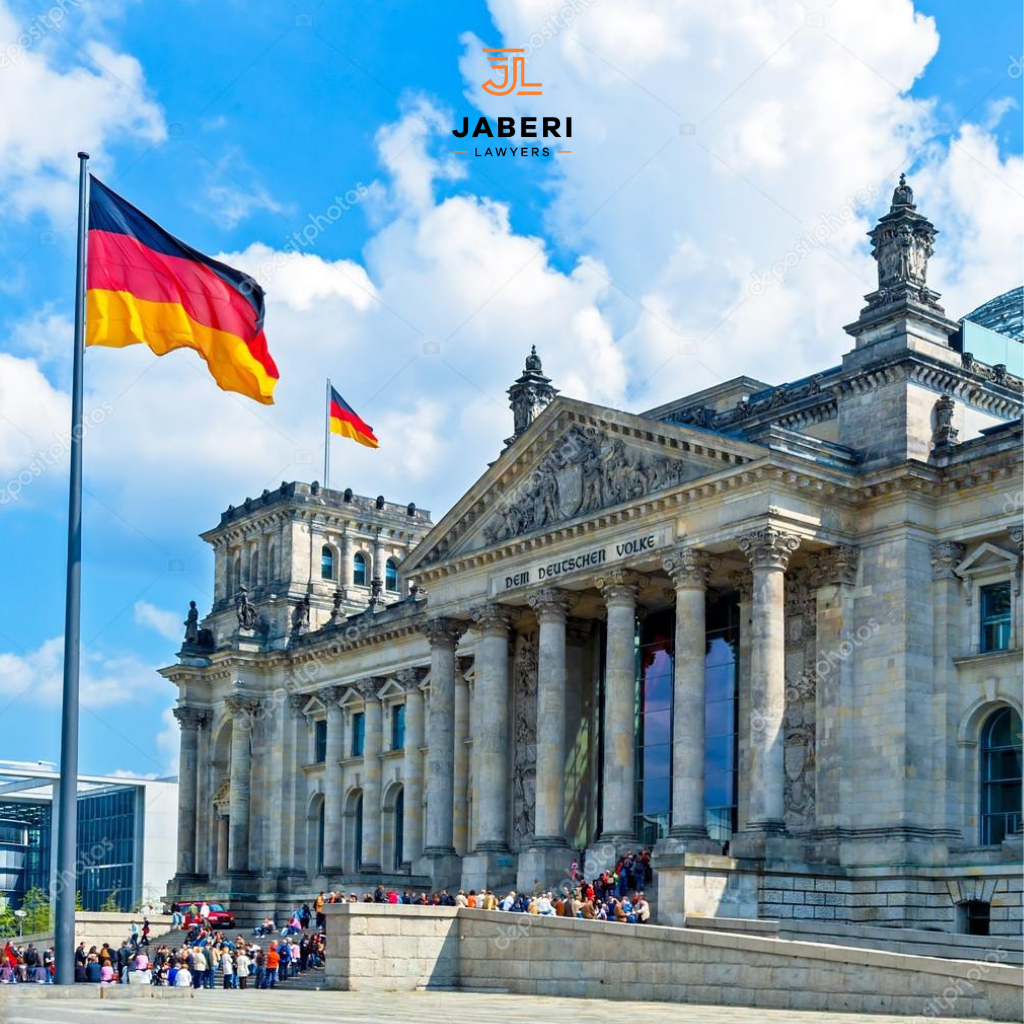Spousal Reunification in Germany: Navigating § 30 of the Residence Act for a Successful Application

Reuniting with your spouse is a deeply significant milestone, especially for foreign nationals residing in Germany who are looking to bring their loved ones into the country. The process, though meaningful, can be intricate, involving detailed legal steps and strict compliance with German immigration regulations. Fortunately, Jaberi Lawyers is here to guide you through the entire process with professionalism and expertise. We offer comprehensive legal support in immigration matters, ensuring that your spousal reunification journey is smooth and stress-free.
Understanding § 30 AufenthG – The Legal Foundation for Spousal Reunification
At the heart of Germany’s immigration framework is § 30 of the Residence Act (Aufenthaltsgesetz or AufenthG), which governs spousal reunification. This provision allows the spouse of a foreign national residing in Germany to apply for a visa and a subsequent residence permit, provided certain conditions are met. The law ensures that families can reunite in Germany, while also safeguarding public interests by enforcing legal requirements around age, language skills, financial stability, and living conditions.
The process can be highly detailed, and the outcome of your application hinges on your ability to meet every criterion set out by the authorities. This is where the expertise of Jaberi Lawyers becomes invaluable. With years of experience in handling family reunification cases, our team ensures that your application is thorough, precise, and tailored to meet the complex legal requirements.
Key Requirements for Spousal Reunification Under § 30 AufenthG
To successfully reunite with your spouse in Germany under § 30 AufenthG, several conditions must be met. These include:
- Minimum Age: Both spouses must be at least 18 years of age at the time of application. This is a non-negotiable requirement designed to prevent forced marriages.
- Basic Language Skills: The spouse seeking reunification must demonstrate basic proficiency in the German language, typically at A1 level under the Common European Framework of Reference for Languages (CEFR). Exceptions may apply in certain cases, such as highly qualified professionals or those holding humanitarian residence permits. If you’re unsure whether an exception applies, Jaberi Lawyers can advise you on your specific situation.
- Legal Status of the Spouse in Germany: The spouse residing in Germany must hold a valid residence permit, such as a settlement permit, EU Blue Card, or other long-term residence status. Different types of permits offer varying conditions for reunification. For example, holding an EU Blue Card can ease the language requirement for the spouse applying to join.
- Sufficient Accommodation: The couple must provide evidence that they have suitable living arrangements in Germany. This means that the home must meet the statutory requirements for living space and not be overly crowded.
- Proof of Financial Stability: The spouse living in Germany must demonstrate that they have sufficient financial means to support their spouse without relying on public welfare. This typically involves submitting salary slips, tax returns, and other evidence of income.
Types of Residence Permits That Support Spousal Reunification
Not all residence permits in Germany allow for easy spousal reunification. Here are the most common permits under which spousal reunification can be pursued:
- Settlement Permit or EU Permanent Residence: These permits provide the most favorable conditions, often waiving language requirements for the spouse.
- EU Blue Card: Designed for highly skilled professionals, the EU Blue Card allows for easier reunification, and in many cases, German language proficiency is not required for the spouse joining the permit holder.
- Humanitarian Residence Permits: For those who have been granted asylum or are recognized as refugees, certain exceptions apply, particularly regarding language skills and financial requirements.
Each type of permit has its own set of conditions and pathways for reunification. Jaberi Lawyers can assess your specific case to determine the best course of action, ensuring that your application meets the unique requirements of your residence status.
Common Challenges in the Spousal Reunification Process and How to Overcome Them
The spousal reunification process can be fraught with challenges, especially if the applicant is unfamiliar with German immigration laws. Some of the most common issues that applicants face include:
- Incomplete Documentation: One of the most frequent reasons for delays or rejections is the submission of incomplete or incorrect documents. It’s essential to provide all required paperwork, including valid passports, marriage certificates (translated and certified), language proficiency certificates, and proof of financial stability. Jaberi Lawyers can assist in reviewing your documents to ensure that everything is in order.
- Inadequate Proof of Relationship: German immigration authorities are vigilant about preventing fraudulent marriages. As such, they may request additional proof that your marriage is genuine, such as photos, correspondence, and joint financial records. Having all these documents well-organized and ready to present is crucial to a successful application.
- Language Requirements: While some applicants may be eligible for an exemption from the German language requirement, proving eligibility can be complex. In cases where language proficiency is required, we can help ensure that your language certificates meet the necessary standards.
- Financial and Accommodation Proof: Misunderstanding the financial or accommodation requirements can lead to delays. Authorities need clear proof that you can support your spouse without state aid and that you have appropriate housing. Working with experienced lawyers ensures that your financial documents meet the legal standards.
By having a qualified immigration lawyer from Jaberi Lawyers assist you, you can avoid these common pitfalls and ensure your application is processed efficiently.
How Jaberi Lawyers Can Support You in the Spousal Reunification Process
At Jaberi Lawyers, we specialize in family reunification and immigration law, with a strong focus on helping individuals navigate the complexities of the German legal system. Whether you’re just starting the process or have already faced obstacles, our dedicated team of immigration experts is here to provide personalized legal assistance.
- Document Preparation: We assist in gathering and preparing the necessary documents, ensuring that nothing is missing or incorrect.
- Application Submission: Our lawyers handle the entire submission process, communicating with the relevant German authorities on your behalf.
- Legal Representation: If complications arise or if your application is rejected, we provide representation to defend your case and work towards a positive outcome.
- Ongoing Support: We offer continued guidance after the initial visa is granted, assisting with the transition to permanent residence or citizenship as needed.
Our mission is to help you reunite with your spouse as quickly and efficiently as possible, all while complying with the legal requirements of German immigration law. Contact us today at
+49 (0)40 413 499 87 or
via email at contact@jaberilawyers.com to start your journey toward a successful spousal reunification.
Related Blogs

Digital Nomads Welcome: The ‘Digital Nomad Visa’ as Your Key to Boundless Work in Germany
The way we work is evolving—becoming more dig ital, flexible, and globally connected. For digital no......

Your Rights Under § 53 AufenthG – Expulsion and Right of Residence Made Simple
Are you or a loved one facing the risk of deportation under Section 53 of the Residence Act? Understanding you......

Investments in Germany: Choosing the Right Path for Your Money
Investments in Germany: Choosing the Right Path for Your Mone Germany offers a wide range of investment opportunities, such as bank......

